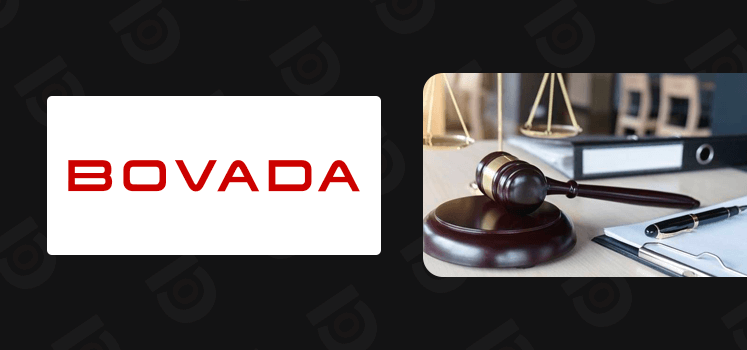 Bovada Lawsuit
Bovada LawsuitBilli Jo Woods from Kentucky spearheads an ambitious legal battle against Bovada, a prominent name in the offshore betting sphere, accusing them of violating the state's Loss Recovery Act (LRA).
- Bovada, emerging from its ancestor Bodog, is under heightened scrutiny as allegations of unauthorized gambling activities continue to surface.
- The renowned figure, Calvin Ayre, known across the gambling industry, is the brainchild behind Bovada's inception, Bodog and has witnessed numerous transformations within the company, making its history a complex tapestry.
- Although Calvin Ayre claimed to have exited the global betting scene by 2009, his influence persisted through his platform, CalvinAyre.com.
- This site was a key resource for avid gambling followers until 2021, when it refocused its content on the rapidly growing digital currency market.
To understand where Bovada stands today, one must consider its roots. Initially branching out from Bodog, Bovada undertook strategic shifts, including handing over its poker division to Ignition Casino in 2016, only for it to be swiftly acquired by Hong Kong's PaiWangLuo a year later.
At the core of the ongoing legal proceedings is Bovada.lv. The platform is alleged to have projected a misleading image of legality to Kentuckians. For those familiar with the gambling industry, this lawsuit echoes past legal skirmishes, reminiscent of an earlier case resulting in a hefty $300 million settlement for the state. Such historical precedents raise the stakes for Bovada's operational future. PokerStars The LRA empowers Kentucky residents with a robust legal tool, enabling them to claim up to three times their losses from unauthorized gambling, regardless of direct participation—setting a strong example for accountability in the gambling sector.
The lawsuit uncovers crucial issues, such as:
Bovada.lv's bold alleged misrepresentation of its compliance status, especially concerning Kentucky's stringent legal framework.
- Its dubious connections to offshore organizations reputed for navigating unclear legal landscapes.
- Allegations that Curaçao’s Harp Media diverted revenues from Bovada’s financial operations.
- Claims that Bovada employed strategic SEO tactics to enhance search engine visibility, potentially deceiving unsuspecting users.
- The implications of this legal case extend beyond Bovada and Kentucky. As online gambling continues to grow, this case could set a legal benchmark affecting future suits across the country. Additionally, it underscores the difficulties in regulating global online operations.
As these legal proceedings progress, the complexities of cross-border digital betting come into sharp relief. The final outcome remains uncertain, especially given the multinational aspect of the defendants and the intertwined history of Bodog and Bovada. This lawsuit highlights the urgent need for transparency, fair regulation, and accountability in the booming online gambling industry, balancing industry ambitions with user protection.
Apollo, a Key Player in Digital Gaming, Penalized by AGCO Over Failures in Upholding Social Responsibility Standards
Related Articles
ESPN Ventures into the Sports Betting World Through a Collaboration with Penn Entertainment
Negative Repercussions of Sports Betting Highlighted as Raptors Players Endure Hostile Fan Behavior
Analyzing Casino Preferences: A Deep Dive into the Gaming Choices of Men vs. Women
Last Updated: September 14, 2023

